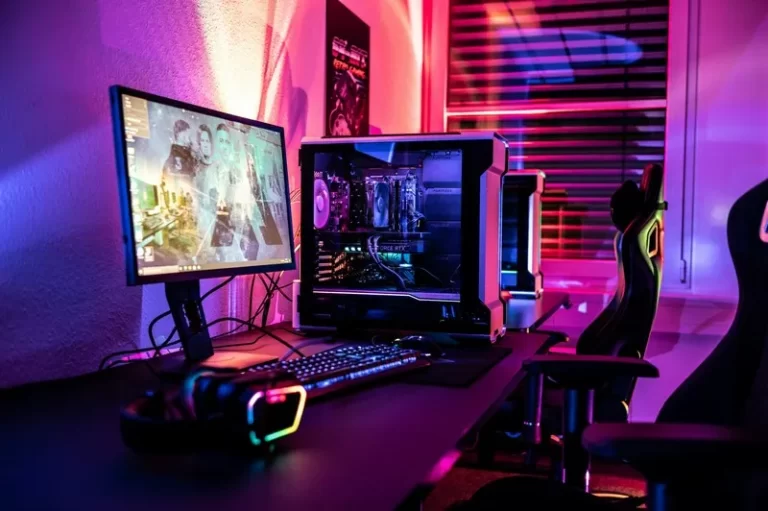Table of Contents
- Introduction: Why Bring the Spectacle to Video Games?
- The Spectacle: From Mass Media to Interactive Worlds
- The Paradox of Interactivity: Playing as Seeing Oneself Being Seen
- Platform Capitalism and the Commodification of Visibility
- Playbour: When Players Become Producers
- Identity, Avatars, and the Performance of Self
- The Production of Space: From Maps to Worlds
- Discipline, Risk, and the Governance of Play
- Global Circulation: Hegemony, Translation, and Local Worlds
- Resistance, Subversion, and Critical Play
- Methods: How to Study Games Through the Spectacle Lens
- Toward a Sociology of Interactive Spectacle
- Conclusion: Beyond Looking—Rewriting the Rules of Being Seen
Introduction: Why Bring the Spectacle to Video Games?
Video games have expanded from a niche pastime to a dominant cultural industry that shapes attention, identity, and social life. From blockbuster releases and live-service platforms to streaming, esports, and virtual economies, gaming now saturates everyday practices and public discourse. The language of the spectacle—the idea that social relations are increasingly mediated by images and representations—offers a rigorous sociological lens for understanding what video games do to society and what society does with video games.
In an era defined by screens, metrics, and algorithmic feeds, games are not merely entertainment objects. They are attention infrastructures that stage rituals of spectatorship, participation, labour, and desire. This article introduces the theory of the spectacle as a framework for analysing contemporary gaming cultures. It shows how interactivity modifies but does not abolish the spectacle; how platforms monetise visibility; how players oscillate between spectators and producers; and how virtual spaces are socially produced and politically contested.
The Spectacle: From Mass Media to Interactive Worlds
The classic notion of the spectacle emphasises a society where images become the chief mediators of social relations. Rather than meeting each other directly, individuals encounter each other—and themselves—through a circulating field of representations. In the broadcast era, the spectacle was associated with television, advertising, and consumer display. Today, the spectacle is networked and interactive. Video games extend this logic in three decisive ways:
- Programmable immersion: Games do not only show images; they stage rules, objectives, and rewards that script what visibility is worth and why. Representation becomes procedural—encoded in systems that anticipate and steer conduct.
- Participatory spectatorship: Players perform for one another inside games (guilds, lobbies, voice chat) and outside games (clips, streams, highlights). The audience is embedded within the production circuit; spectatorship becomes participatory, yet still unequally organised by platforms that own the visibility.
- Metricised value: Points, ranks, skins, and season passes translate affect and attention into quantifiable assets. The spectacle’s currency is no longer only the image but also the metric—a visible, comparable unit that anchors status and exchange.
Under these conditions, the spectacle no longer looks like passive television. It looks like competitive leaderboards, loot drop animations, social feeds, and stream overlays, through which recognition is earned, measured, and sold.
The Paradox of Interactivity: Playing as Seeing Oneself Being Seen
Video games are often celebrated as a break from the spectacle because they invite participation. Yet participation alone does not dissolve spectacular relations. Sociologically, interactivity can reinforce the spectacle by binding identity and value to moments of public visibility. Consider the following dynamics:
1) The loop of performance and recognition
Players cultivate skill, style, and persona. These are performed through avatars, builds, and tactical choices that are continually witnessed—by teammates, opponents, and viewers. The thrill of a perfect combo, a clutch save, or a speedrun world record is inseparable from a regime of recognition: medals, replays, emotes, chat reactions. Interactivity thus becomes a machine for seeing oneself being seen. The more the self is tethered to metrics and spectatorship, the more gameplay converges with the spectacle’s logic.
2) The stream as stage
Streaming platforms magnify this loop. A game session is also a show with scenes, bits, and monetisable attention moments (subscriptions, donations, sponsorship callouts). The interface layers of chat, alerts, and overlays transform play into a multi-channel spectacle—part game, part talk show, part commerce. The player’s agency persists, but it is orchestrated by the demand to be continuously watchable.
3) Esports: dramatizing skill for markets
Esports crystallise these tendencies into stadium-scale events with production crews, casters, branded content, and storylines. Competitive formats craft legible arcs (underdog, rivalry, comeback) that are easily packaged into highlight reels and sponsor activations. Here, interactivity operates as a content engine. What looks like pure meritocracy is in fact a socially organised visibility market—structured by resources, access, training infrastructure, and platform deals.
Platform Capitalism and the Commodification of Visibility
Video games today are inseparable from platforms that host, distribute, and monetise them. The spectacle persists not simply because images circulate but because platforms convert visibility into rent. Several mechanisms illustrate how this works:
Free-to-play economies and the aesthetics of scarcity
Free-to-play models extend the audience base while intensifying monetisation of cosmetic differentiation. Rotating shops, limited-time skins, and season-bound battle passes simulate scarcity. The spectacle thrives on temporal pressure (FOMO), social comparison (status signals), and ritual reveal (opening packs, unlocking tiers). Even when purchases are cosmetic, they reorganise social space by indexing distinction—who can display what and when.
Loot boxes, probabilistic thrills, and spectacle as chance
Animated openings, confetti bursts, and rarity colours aestheticise probability. The visual dramaturgy of “legendary” items wraps the mathematics of chance in a public theatre of desire. The spectacle here is a carefully choreographed moment of uncertainty—a shared scene where viewers and players together anticipate the reveal. Regardless of regulation debates, the sociological point is that value emerges at the intersection of calculation (drop rates) and affect (anticipatory excitement), both mediated by staged visibility.
Datafication and algorithmic curation
Discovery pages, trending lists, and personalised recommendations decide what games and creators become visible. These systems are not neutral; they are organisational choices that convert user traces (watch time, dwell time, click-through) into rankings of worth. The spectacle is algorithmically sorted, creating winner-take-most distributions of attention. For creators and studios, design decisions increasingly optimise for algorithmic legibility: concise loops, viral moments, and readily shareable highlights.
Playbour: When Players Become Producers
The spectacle’s most consequential move in gaming is to recruit players as unwaged or under-waged cultural workers. Modders, speedrunners, tournament organisers, community managers, clip editors, and Discord moderators all populate the production chain. Their contributions generate value in the form of retention, content libraries, community upkeep, and marketing buzz. Much of this activity is voluntary and pleasurable—yet it is also precarious, subject to platform policy shifts, demonetisation, or appropriation by official updates.
“Playbour” is not merely exploitation; it is a hybrid formation where creativity and control interlock. Sociological analysis asks: Who owns the infrastructure? Who benefits from network effects? Which forms of labour remain invisible? Answering these questions clarifies how the spectacle becomes self-augmenting: fans produce the very images and narratives that capture more fans.
Identity, Avatars, and the Performance of Self
Get the full article AD FREE. Join now for full access to all premium articles.
View Plans & Subscribe Already a member? Log in.





